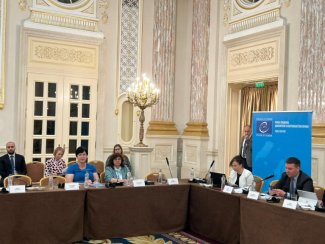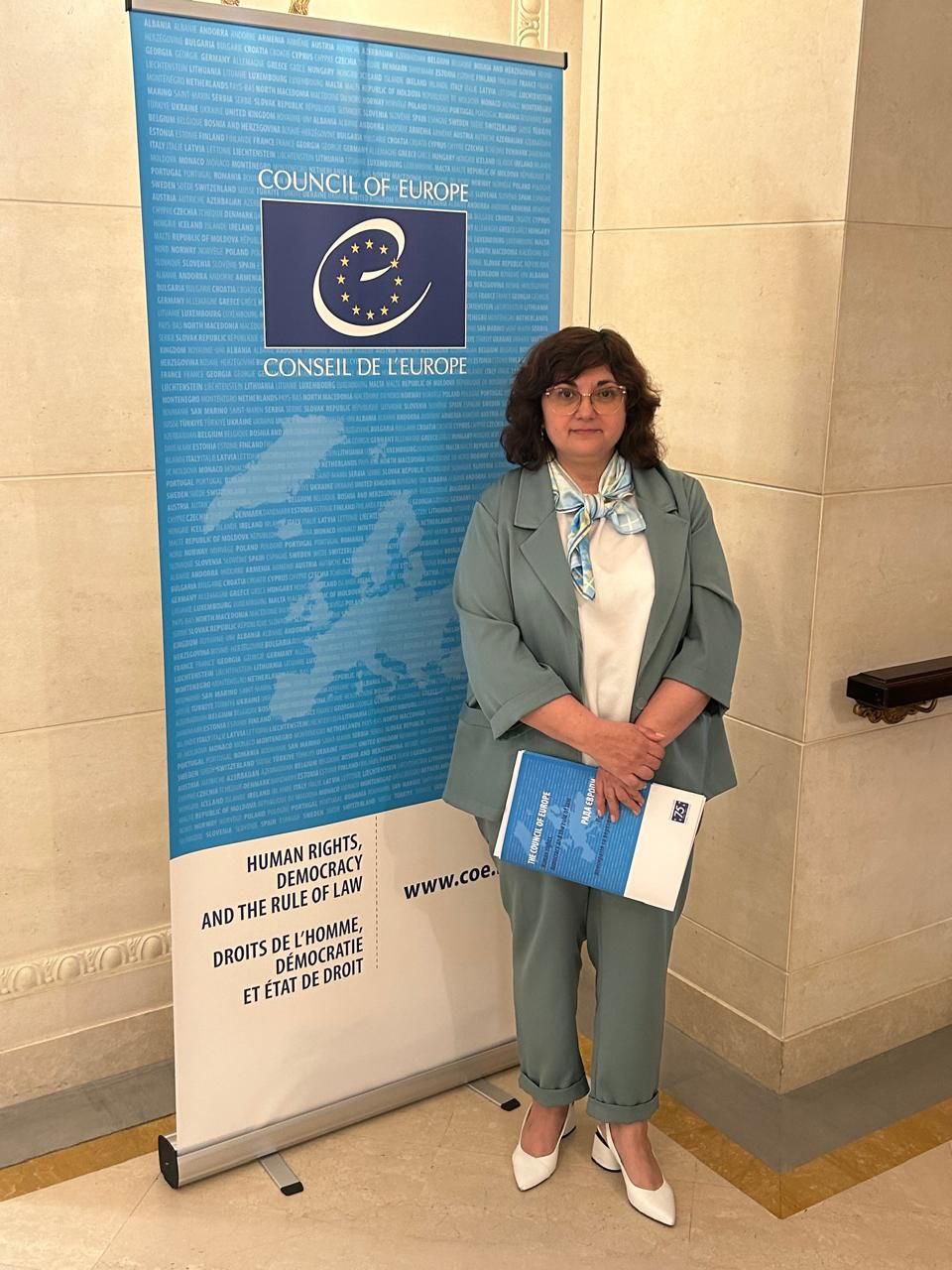Contact center of the Ukrainian Judiciary 044 207-35-46

Supreme Court Judge of the Criminal Cassation Court Oleksandra Yanovska made this statement during a meeting of the Steering Committee for the Implementation of the Council of Europe Action Plan for Ukraine "Resilience, Recovery and Rebuilding" for 2023-2026.
Due to Russia's armed aggression, human rights are systematically violated. That is why the priority for Ukrainian courts is to restore justice and protect the rights of people affected by the war. Each of the jurisdictions has undergone certain changes since the start of the full-scale invasion: in criminal proceedings, the number of proceedings on crimes against national security and war crimes has significantly increased; in civil and commercial proceedings, courts resolve disputes over compensation for damages caused by Russia's aggression and disputes related to non-fulfillment or improper fulfillment of obligations as a result of the war; in administrative proceedings, disputes related to the status of internally displaced persons and the proper fulfillment of the guarantees assumed by the state due to this status.
The Supreme Court plays an important role in this process, as it ensures the unity of case law, including in disputes arising from the full-scale invasion of Russia. In the spring of 2022, the Supreme Court expressed its position on the judicial immunity of the aggressor state, concluding that such immunity cannot deprive Ukrainian citizens of the right to access to court in disputes related to compensation for damage caused by the armed aggression of the Russian Federation.
Oleksandra Yanovska also highlighted other important decisions made by the Supreme Court, in particular, on the jurisdiction and procedure for obtaining compensation for forcibly alienated (mobilized) property under the legal regime of martial law; on the impossibility of suspending the proceedings due to the plaintiff's membership in the Armed Forces of Ukraine if he insists on continuing the case; establishing the fact of a woman living in the same family without registering a marriage with a serviceman who died during combat operations, ensuring the implementation of measures for national security and deterring armed aggression of the Russian Federation.
Despite the difficult situation, Ukraine is reforming its judicial system to achieve an important goal - to bring it closer to high European standards in the field of judicial proceedings. The HCJ and the HQCJ have resumed their work, and the legislation on the selection of judges to the Constitutional Court of Ukraine has been amended to make it more transparent. In addition, a competition for positions in the Service of Disciplinary Inspectors, which will be involved in bringing judges to justice, is underway.

Ukrainian legal professionals are actively studying international practice and exchanging experience with foreign colleagues to better understand ECHR judgments and further align national judicial practice with European standards. Ukraine is also actively implementing various legal initiatives.
Several successful projects are being implemented in cooperation with the Council of Europe Office in Ukraine, including: "Support to the functioning of justice in the war and post-war context in Ukraine", "Strengthening social protection in Ukraine", "Support to democratic post-war elections in Ukraine", and "Fostering human rights in the criminal justice system in Ukraine". Each of them makes a significant contribution to the overall support of our country and contributes to its resilience in difficult times. In addition, CCJE Opinion No. 26 (2023) "Moving forward: the use of assistive technology in the judiciary" was presented, the international HELP course "International Humanitarian Law and Human Rights" was organised, a round table for judges of first instance and appellate courts on topical issues of the application of ECHR case law and the International Scientific and Practical Conference "Ukraine on the way to European Integration: effective management of state property as a tool for Ukraine's economic recovery. Mission and vision of the commercial jurisdiction" were held.
.jpg)
The Council of Europe Action Plan for Ukraine "Resilience, Recovery and Rebuilding" for 2023-2026 was developed in close cooperation with the Ukrainian authorities in response to the desire and determination of the Ukrainian people to participate in the country's recovery after the brutal aggression of the Russian Federation. It is based on the experience and standards of the Council of Europe and aims to support the process of reconstruction and economic recovery of Ukraine. In addition, the Plan covers a wide range of issues with an emphasis on the protection of human rights and fundamental freedoms.
In conclusion, the Supreme Court judge expressed her gratitude to the international partners for their significant contribution to Ukraine's development, strengthening of its democratic institutions and protection of human rights.
"We believe that together we can defeat the criminal aggression, rebuild our country and create a better future for all Ukrainians. This future must be based on the inviolable principles of human rights, which are the foundation of democracy and the rule of law," summarized Oleksandra Yanovska.
The event was also attended by Lina Hubar, Head of the Division for International Cooperation of the Supreme Court.
The event was organized by the Ministry of Foreign Affairs of Ukraine in cooperation with the Council of Europe Office in Ukraine.